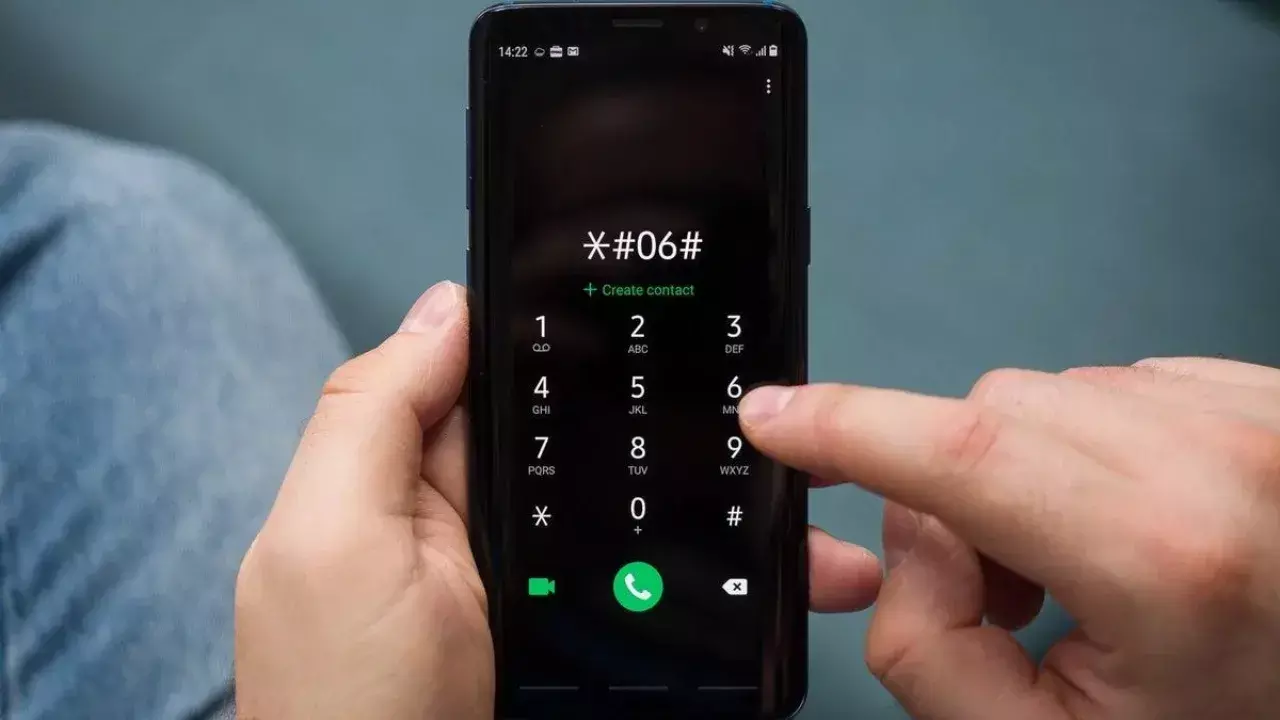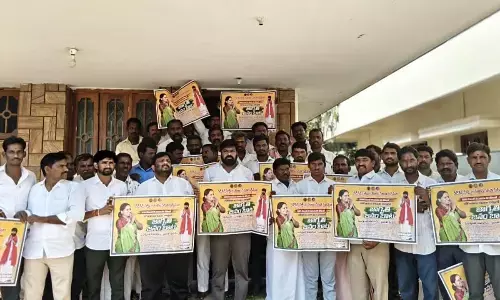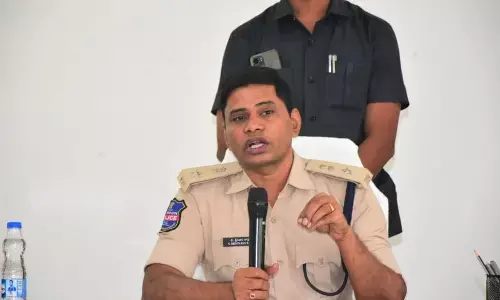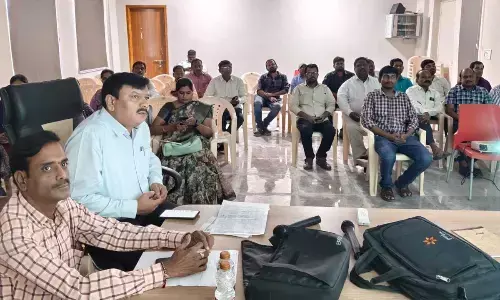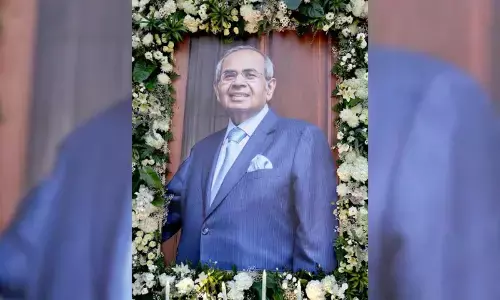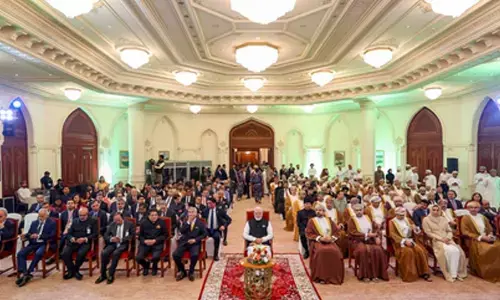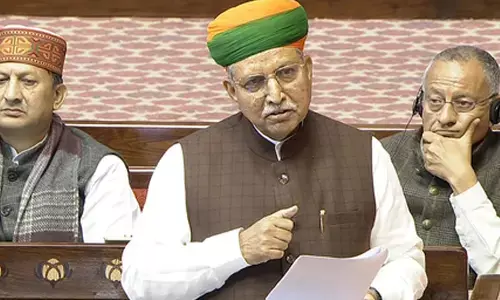The politics of a plot to kill Sri Lanka's president Maithripala Sirisena
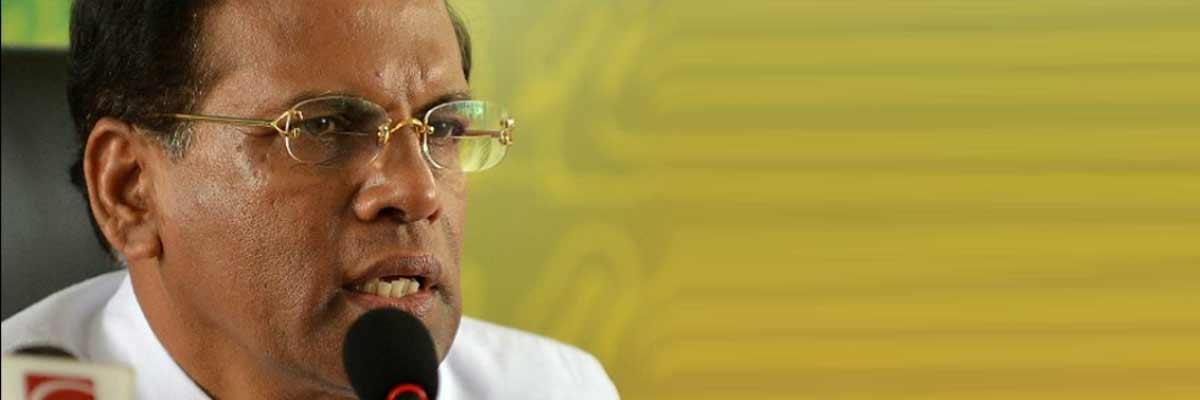
A plot to kill the president, links to foreign intelligence, a rogue police officer and a missing sniper the snippets of news emerging from Sri Lanka in recent weeks seem plucked from the pages of paperback fiction
A plot to kill the president, links to foreign intelligence, a rogue police officer and a missing sniper: the snippets of news emerging from Sri Lanka in recent weeks seem plucked from the pages of paperback fiction.
But the allegations have had real enough consequences for the island nation, contributing to upending its politics, undermining its currency and credit rating, and affecting relations with giant neighbour India.
President Maithripala Sirisena sacked Prime Minister Ranil Wickremesinghe in October, just weeks after a little-known social activist alleged he had heard of a plot to assassinate the president from a police officer.
Reuters has learned that investigators have not found any substantial evidence to back up the claim, although Sirisena said in a newspaper interview this month that the refusal of Wickremesinghe to take the plot seriously was the final straw leading to his dismissal.
A spokesman for Sirisena did not respond to Reuters' requests for comment.
Sirisena said in the interview with Ceylon Today: "I was completely disappointed by the way things were moving."
Referring to the assassination plot, he added: "They (the authorities) displayed utter lethargy."
Wickremesinghe has said he never interfered with the investigations and kept Sirisena informed of their progress.
Sri Lanka has a long history of political assassinations in decades of civil war, making Sirisena's allegations all the more explosive.
"It is hard to know what the truth is and many people are sceptical (of the plot)," said a senior Western diplomat in Sri Lanka's capital Colombo. "It's part of the politics," he added.
What is clear is the drama has paralysed the island nation and left it without a functioning government for months.
The alleged plot first came to light on September 12, when self-styled anti-corruption activist and police informant Namal Kumara gathered a few local journalists and made a series of accusations against a senior police officer.
The most alarming of those claims was that the officer had told him about a plot to assassinate Sirisena using agents of the criminal underworld.
Kumara said he had deleted the recording of the conversation about the plot against Sirisena out of fear, but to back up his allegations he released recordings of other conversations with the deputy inspector general of police, Nalaka de Silva.
Ruwan Gunasekara, a police spokesman, said there was evidence in those recordings of a plot to kill another senior officer. But he added that in nearly three months of investigations, police had found "no substantial evidence" of an assassination threat to Sirisena beyond Kumara's claims.
The comments, made to Reuters, have not been previously reported.
"NONSENSE"
On Saturday, police sent Kumara's phone to Hong Kong to see if any deleted recordings could be recovered. De Silva remains in custody and could not be reached for comment.
Speaking via a video-call from a town in Sri Lanka's eastern province, a relaxed, bare-chested Kumara told Reuters the police were now showing little interest in his story.
"The way they (investigators) take action is very poor. I'm ready to help them if they ask," he said, adding that he had further information to reveal to authorities. He declined to elaborate.
From the outset, there were doubts over Kumara, who runs a private anti-corruption campaign group that he says is funded by himself and a few other activists.
"All what he said was nonsense," Rajitha Senarathne, the cabinet spokesman in the former government of Wickremesinghe, told Reuters.
Even one of Sirisena's closest aides acknowledged that Kumara may not be reliable.
"That informant may not be credible but you can't just brush it (the plot) away," Shiral Lakthilaka, the president's coordinating secretary and adviser, told Reuters.
In an interview with foreign correspondents late last month, Sirisena alleged that former cabinet minister and army chief Sarath Fonseka may be involved in the plot. He also said a missing man described as a former Tamil militant sniper could be involved.
Gunasekara from Sri Lanka's police told Reuters there was no investigation into Fonseka "at the moment" and that he "was not aware" of the incident involving the missing sniper. Fonseka has denied the allegations and called for Sirisena to be prosecuted.
INDIAN CONNECTION
Police have said they arrested an Indian national named Marsili Thomas in connection with the case on information provided by Kumara.
Rumours started to swirl around social media that Thomas was working for the Indian secret service - which Sirisena later referred to in a cabinet meeting, according to officials present, threatening a diplomatic furore.
India, the regional superpower, is an ever-present bogeyman for Sri Lankans. Many blame India for supporting Tamil Tiger separatists during the civil war.
Asked if Thomas was linked to India's intelligence, the Indian High Commission in Sri Lanka did not respond. Thomas, who remains in custody in Sri Lanka, could not be reached for comment.
India's foreign ministry has said Sirisena spoke to Indian Prime Minister Narendra Modi about the issue to ensure it didn't lead to a diplomatic crisis.
As the rumours and conspiracy theories continue to swirl around Colombo, Sri Lanka's government is in limbo. Wickremesinghe's replacement, former president Mahinda Rajapaksa, has lost two confidence motions in parliament and been prevented from assuming office by a court order.
Sirisena has ordered the parliament dissolved and called for fresh elections, but Sri Lanka's top court ruled the move as unconstitutional on Thursday.
Sirisena has called the impasse "a storm in a teacup."
"These issues will be settled soon and no one needs to worry," he said in the newspaper interview.
But he has refused to reinstate Wickremesinghe.
He told the foreign correspondents: "Leave the law and order aside, isn't it a duty of a prime minister at least to ask the president who is facing an assassination threat? There was nothing like that ... How can I go forward with Ranil Wickremesinghe?"








